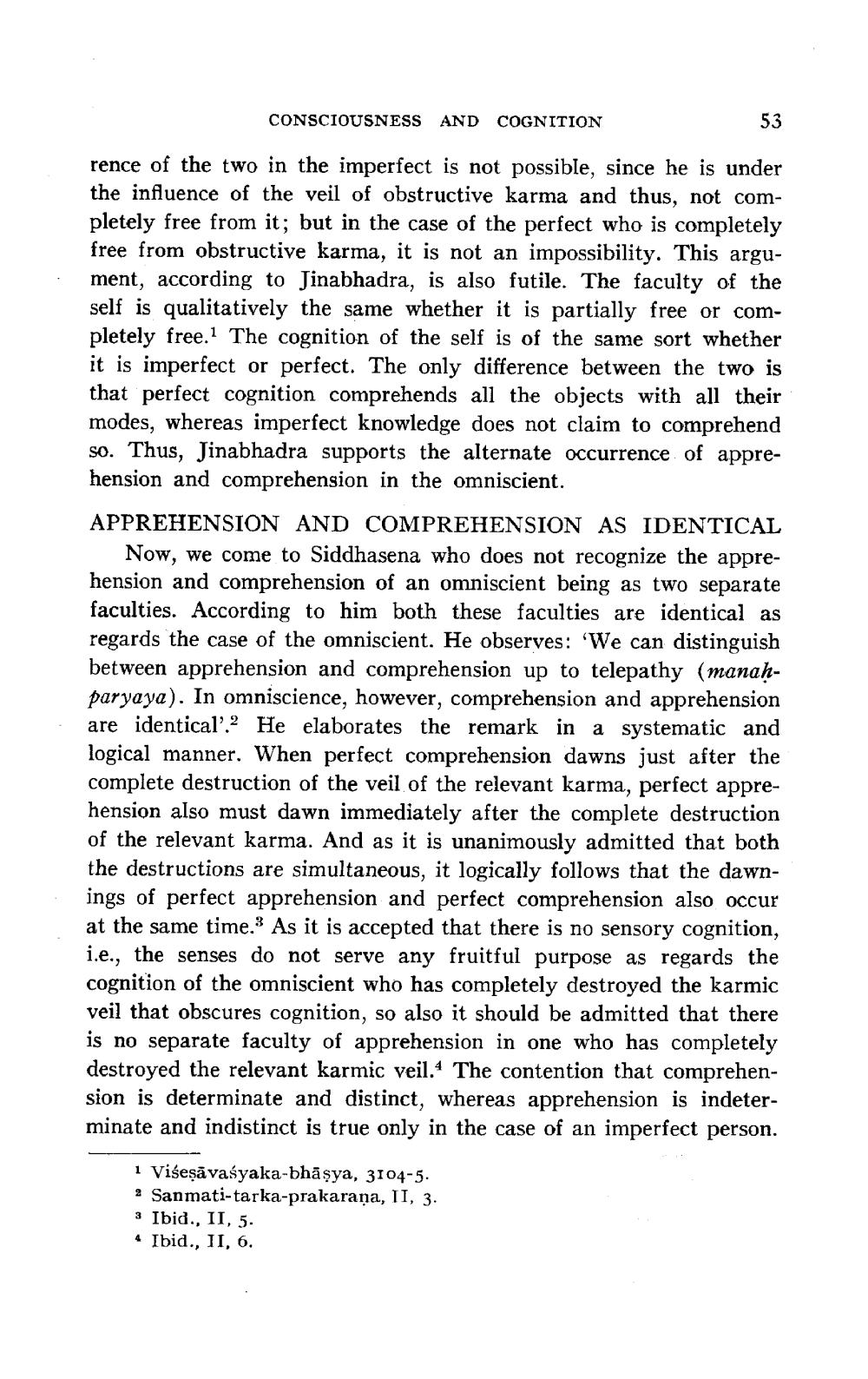________________
CONSCIOUSNESS
AND COGNITION
53
rence of the two in the imperfect is not possible, since he is under the influence of the veil of obstructive karma and thus, not completely free from it; but in the case of the perfect who is completely free from obstructive karma, it is not an impossibility. This argument, according to Jinabhadra, is also futile. The faculty of the self is qualitatively the same whether it is partially free or completely free. The cognition of the self is of the same sort whether it is imperfect or perfect. The only difference between the two is that perfect cognition comprehends all the objects with all their modes, whereas imperfect knowledge does not claim to comprehend so. Thus, Jinabhadra supports the alternate occurrence of apprehension and comprehension in the omniscient.
1 Viseṣāvasyaka-bhāṣya, 3104-5.
2 Sanmati-tarka-prakaraṇa, II, 3.
3 Ibid., II, 5.
4 Ibid., II, 6.
APPREHENSION AND COMPREHENSION AS IDENTICAL
Now, we come to Siddhasena who does not recognize the apprehension and comprehension of an omniscient being as two separate faculties. According to him both these faculties are identical as regards the case of the omniscient. He observes: 'We can distinguish between apprehension and comprehension up to telepathy (manaḥparyaya). In omniscience, however, comprehension and apprehension are identical'.2 He elaborates the remark in a systematic and logical manner. When perfect comprehension dawns just after the complete destruction of the veil of the relevant karma, perfect apprehension also must dawn immediately after the complete destruction of the relevant karma. And as it is unanimously admitted that both the destructions are simultaneous, it logically follows that the dawnings of perfect apprehension and perfect comprehension also occur at the same time. As it is accepted that there is no sensory cognition, i.e., the senses do not serve any fruitful purpose as regards the cognition of the omniscient who has completely destroyed the karmic veil that obscures cognition, so also it should be admitted that there is no separate faculty of apprehension in one who has completely destroyed the relevant karmic veil. The contention that comprehension is determinate and distinct, whereas apprehension is indeterminate and indistinct is true only in the case of an imperfect person.




